Filter by
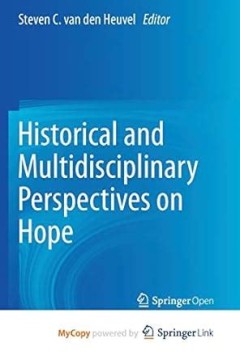
Historical and Multidisciplinary Perspectives on Hope
This open access volume makes an important contribution to the ongoing research on hope theory by combining insights from both its long history and its increasing multi-disciplinarity. In the first part, it recognizes the importance of the centuries-old reflection on hope by offering historical perspectives and tracing it back to ancient Greek philosophy. At the same time, it provides novel per…
- Edition
- 1
- ISBN/ISSN
- 9783030464899
- Collation
- XVI, 263 hlm; ill., lamp.,
- Series Title
- -
- Call Number
- -
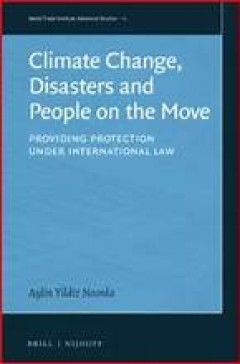
Collaborative Practical Theology
Collaborative Practical Theology documents and analyses research on Christian practices conducted by academic practical theologians in collaboration with practitioners of different kinds in Christian practices all around the world. These practitioners include professional practitioners, everyday believers, volunteers and students in theological education. The book offers rationales for setting …
- Edition
- -
- ISBN/ISSN
- 978-90-04-41323-8
- Collation
- -
- Series Title
- Theology in Practice, Volume: 8
- Call Number
- -

A Short History of Christianity beyond the West: Asia, Africa, and Latin Amer…
Today, the majority of the world's Christian population lives in the Global South. Knowledge of their history is therefore indispensable. This textbook offers a compact and vivid overview of the history of Christianity in Asia, Africa and Latin America since 1450, focussing on diversity and interdependence, local actors and global effects. Maps, illustrations and numerous photos as well as cont…
- Edition
- Volume: 31
- ISBN/ISSN
- 9789004699830
- Collation
- -
- Series Title
- -
- Call Number
- -
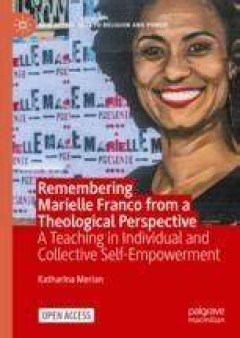
Remembering Marielle Franco from a Theological Perspective
In this Open Access book, Katharina Merian discusses memories of Marielle Franco from the perspective of the concept of dangerous memory introduced by the political theologian Johann Baptist Metz. Franco was an Afro-Brazilian human-rights activist and city councilor of Rio de Janeiro who was assassinated on March 14, 2018. Her murder elicited worldwide protest and empathy. Today she is consider…
- Edition
- 1
- ISBN/ISSN
- 978-3-031-65353-7
- Collation
- -
- Series Title
- New Approaches to Religion and Power
- Call Number
- XVIII, 299

Fethullah Gülen’s Teaching and Practice
This is the first book of its kind about the Turkish Muslim scholar, Fethullah Gülen, since the July 2016 events in Turkey, the trauma experienced by Gülen, and the disruption to initiatives inspired by his teaching, known as Hizmet. Drawing on primary interviews with Gülen and Hizmet participants and a literature review, this Open Access book locates the clear origins of Gülen’s teaching…
- Edition
- 1
- ISBN/ISSN
- 978-3-030-97363-6
- Collation
- -
- Series Title
- -
- Call Number
- XXI, 250

Hizmet in Transitions
In this open-access monograph, Paul Weller explores how the movement known as Hizmet (meaning “service”) is undergoing a period of transitions in Europe. Inspired by the teaching and practice of the Turkish Islamic scholar, Fethullah Gülen, Hizmet has been active in Europe (and other continents) for several decades. It has always been subject to some degree of contestation, which has inten…
- Edition
- 1
- ISBN/ISSN
- -
- Collation
- -
- Series Title
- -
- Call Number
- XXI, 253

Why Not "Russellism"? : alias "Millennial Dawnism"
Why Not "Russellism"? Alias "Millennial Dawnism" is a critical examination of the beliefs and teachings of Charles Taze Russell, founder of the Bible Student movement and the origin of what later became known as Jehovah’s Witnesses. This work addresses Russell’s interpretations of biblical prophecy, his approach to eschatology, and his controversial Millennial Dawn teachings, which outlined…
- Edition
- -
- ISBN/ISSN
- -
- Collation
- p. 159-270
- Series Title
- -
- Call Number
- -
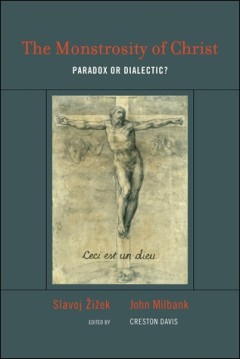
The Monstrosity of Christ: Paradox or Dialectic?
A militant Marxist atheist and a "Radical Orthodox" Christian theologian square off on everything from the meaning of theology and Christ to the war machine of corporate mafia.OCLC-licensed vendor bibliographic record.
- Edition
- -
- ISBN/ISSN
- 9780262254816
- Collation
- 1 online resource (311 pages).
- Series Title
- -
- Call Number
- -
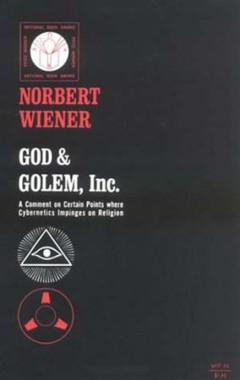
God & Golem, Inc : a comment on certain points where cybernetics impinges on …
The new and rapidly growing field of communication sciences owes as much to Norbert Wiener as to any one man. He coined the word for it--cybernetics. In God & Golem, Inc. , the author concerned himself with major points in cybernetics which are relevant to religious issues.The first point he considers is that of the machine which learns. While learning is a property almost exclusively ascribed …
- Edition
- -
- ISBN/ISSN
- 9780262286152
- Collation
- 1 online resource (99 pages).
- Series Title
- -
- Call Number
- 001 WIE g

A natural history of natural theology :the cognitive science of theology and …
"Questions about the existence and attributes of God form the subject matter of natural theology, which seeks to gain knowledge of the divine by relying on reason and experience of the world. Arguments in natural theology rely largely on intuitions and inferences that seem natural to us, occurring spontaneously--at the sight of a beautiful landscape, perhaps, or in wonderment at the complexity …
- Edition
- -
- ISBN/ISSN
- 0262326833
- Collation
- 1 online resource (xvii, 246 pages)
- Series Title
- -
- Call Number
- -
 Computer Science, Information & General Works
Computer Science, Information & General Works  Philosophy & Psychology
Philosophy & Psychology  Religion
Religion  Social Sciences
Social Sciences  Language
Language  Pure Science
Pure Science  Applied Sciences
Applied Sciences  Art & Recreation
Art & Recreation  Literature
Literature  History & Geography
History & Geography